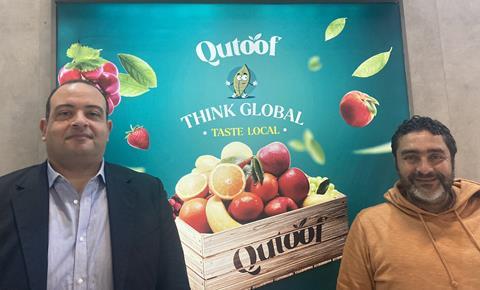Small citrus sizes and increased costs present a challenge for Egyptian exporters, but high European demand for strawberries, salads and other vegetables has been a blessing
Citrus sizes are smaller this year in Egypt, according to Mohamed Diab, quality director at Cairo 3A for Agricultural and Animal Production, a result of heavy rain and hailstorms during the flowering and fruit set period that affected around 20 per cent of the company’s farms.
“It is the same trend in Spain and Morocco,” he says. “This whole region is producing smaller fruits, which make up around 60-70 per cent, including Navel and Valencia. This weather has also had a bad effect on easy peelers, so the market has a shortage.”
“Sizes are a big challenge,” adds export manager Mohamed Shams. “A lot of customers have been asking us to pack bigger fruits, but this season it takes some time to fill up a container of the big sizes. But they understand that this is the reality this season.”

However, more sizeable challenges exist for Egyptian exporters, not least the sky-high costs. “The increase in costs is a challenge, including for raw materials for packaging,” says Shams. “It’s not like in the past when we knew the cost at the beginning of the season and we based our price on this. Now we have to revise our costs once or twice a week due to changes in the price of everything.”
According to Shams, the devaluation of the Egyptian pound has actually helped to support exports from Egypt during this period, enabling companies to compete with other countries, but transportation remains expensive.
“Shipping costs are still high,” he says. “Also the cost of airfreight, which we require for strawberry exports, is very high compared with a few years ago. Of course this is one of the of the main things that affects our costing because we pay the freight in dollars and with the devaluation of the Egyptian pound, we are now paying a huge amount to deliver the fruit to the customer. And this impacts the price offering we give to our customers. We give them the best price we can based on the costs we are paying, and they accept that.”
In addition to citrus, Cairo 3a produces strawberries, grapes, pomegranates, salads and various other vegetables, sold under the company’s Qutoof brand. This past strawberry season, according to Shams, demand from Europe remained strong much later in the campaign.
“We usually stop exporting strawberries to Europe and the UK by mid-January, but in mid-February, we were still shipping a lot, even more than during the peak season in December,” he says. “I’m sure the main reason is the weather conditions in Spain and Morocco. A lot of greenhouse producers have also lowered their production due to the high cost of energy, so that may be why we’ve also seen high demand for salads and other vegetables like broccoli and peppers.”



